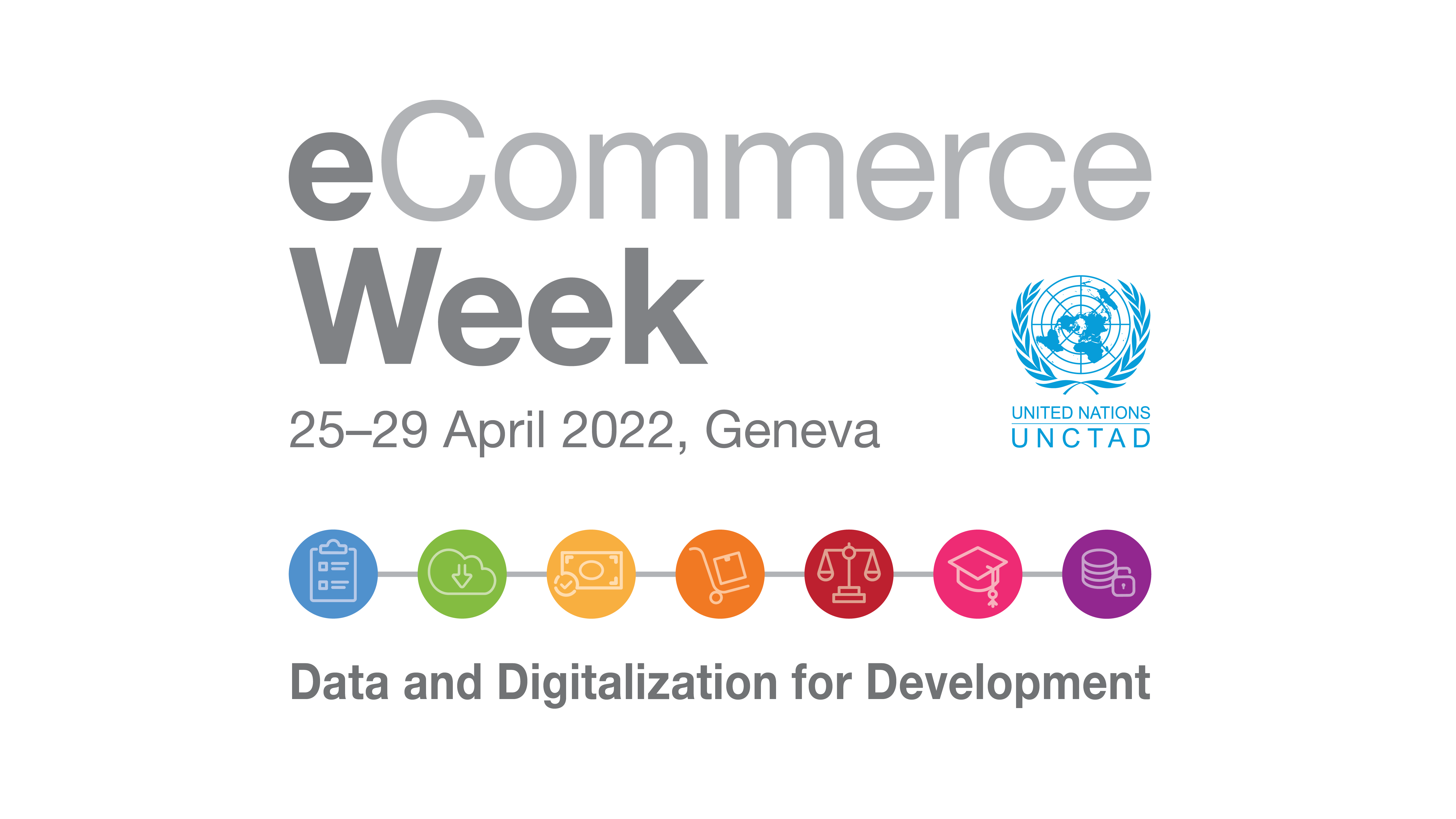From eTrade Readiness Assessments to implemented recommendations
27 Apr 2022 10:00h - 11:00h
Event report
This session assessed the progress made in eTrade Readiness assessments that UNCTAD has conducted since 2017. The particular purpose of this session was to discuss the second Implementation Review of UNCTAD.
Ms Cécile Barayre (Chief, Digital Economy Capacity-Building Section, UNCTAD) moderated and introduced the session by introducing how best to deliver eTrade readiness assessments in order to accelerate policy actions.
UNCTAD has done 29 assessments for least developed countries and the demand for more is very high, noted Ms Shamika N. Sirimanne. UNCTAD supported implementation through the Implementation Support Mechanism in 2020, which enforces synergies among development partners and facilitates access to relevant e-commerce capacity-building and development solutions. Furthermore, UNCTAD supports countries in the monitoring of progress made through reviews.
A second implementation review entitled ‘Fast Checking Implementation of eTrade Readiness Assessments’, examines the progress accomplished by 14 countries. The findings of the report were presented by Mr Alessandro Vitale (Programme Management Officer, UNCTAD).
Vitale clarified that implementation reviews are the cornerstone of the Implementation Support Mechanism and that UNCTAD had an overall implementation rate of 59% of recommendations, while four countries stand out in the implementation rate: Cambodia, Bhutan, Senegal, and Togo. Vitale highlighted the importance of strong political leadership in the implementation of recommendations; a championing ministry is vital and stakeholder mobilisation and coordination are necessary to developing national e-commerce policies.
He underscored that eTrade Readiness Assessments provide a reasonable basis for cross-country comparisons and exchanges of experiences. They also help to enhance regional cooperation in the area of e-commerce; for example, in West Africa, the ECOWAS Commission started to develop a strategy for e-commerce. Vitale stressed that COVID-19 issues had accelerated e-commerce enabling measures, while eTrade Readiness Assessments were used as a reference for recovery plans (e.g., in Malawi). Vitale elaborated on some of the recommendations presented in the report.
Mr Sonam Tashi (Chief Planning Officer, Bhutan) shed light on factors for successful implementation from Bhutan’s national perspective and experience. Tashi said that the critical factor had been political commitment at the highest level and in the private sector, which played an essential role in moving forward e-commerce initiatives.
Three initiatives were important. First, as an unintended consequence of COVID-19 and an increase in digital activity, many businesses went online, which allowed many Bhutanese people to import goods from all over the world. Second, consequences for regulatory policies played an important role. Third, the need to build up domestic productive capacities became apparent.
Regarding the role of development partners and capacity-building solutions, Tashi pointed to two levels: first, the host country’s commitment and obligations and, second, efforts on the part of development partners. On the side of the host country, he explained, there is a need to enhance policy coordination and strengthen internal inter-ministerial coordination. It is crucial to engage all businesses of all sizes to see how to practically prioritise e-commerce into the national agenda. From the perspective of development partners, he highlighted the importance of coordination among themselves to deliver a single coordination package.
Ms Ibrahima Nour Eddine Diagne (CEO,GAINDE 2000) discussed the question of urgent policy measures in Senegal that were prioritised for recovery from the pandemic: first, a repository of all the digital services to support e-commerce; second, a governmental National E-commerce Platform, which allows shops to promote their own products. These measures will enable the government to apply rules such as the protection of consumers and the safety of products.
The implementation of recommendations could not be done without the effective collaboration of all stakeholders involved in digital connectivity and trade. Public-private partnership is essential to connect the dots; in concrete terms, it means developing a robust collaboration framework that will bring together government, the private sector, technical and financial partners, NGOs, civil society, and academia, Mr Aissatou Diallo (Senior Coordinator, AfCFTA and LDCs, ITC) highlighted. A multistakeholder platform is essential to ensure synergies and complementarity and push for effective implementation.
The United Nations Resident Coordinator’s Office (UNRCO) has designed a more efficient and effective way of integrating efforts to accelerate progress toward national development priorities and sustainable development goals (SDGs), noted Mr Matthew Johnson-Idan (Senior Economist, UNRCO, Lao PDR). Johnson-Idan reflected on the new UN generation Cooperation Framework.
By Kristina Hojstricova
Related topics
Related event

